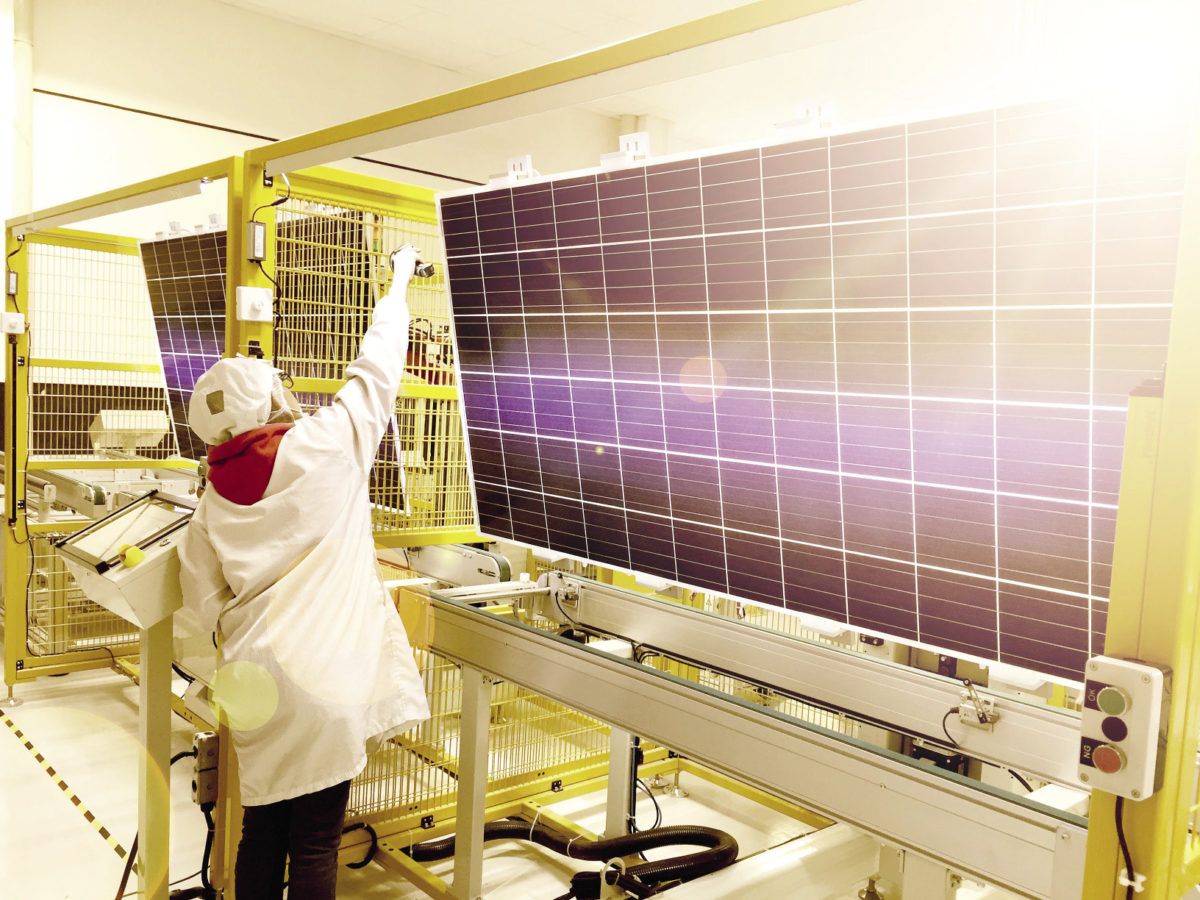Scale matters
While promising, production volumes of heterojunction (HJT) cells remain far below TOPCon. JinkoSolar has been at the vanguard of adopting the technology in large volumes. Even by mid-2022, Jinko was reporting having some 16 GW of TOPCon module capacity, and an order book of some 8 GW – with expectations that would swell to 20 GW.
Jinko’s Tiger Neo n-type tops out at 21.82% module efficiency with power classes up to 610W in a 78 full-cell format.
“Neo did rank highest in Exawatt’s PV Module Tracker in terms of efficiency in our TOPCon category and also because Jinko has such large capacities it also dominates our TOPCon category in terms of production volume,” says Molly Morgan, a senior research analyst for Exawatt.
Jinko is far from alone in switching large production volumes to TOPCon. Canadian Solar aims to produce M10 (182 mm) and G12 (210 mm) TOPCon solar cells in the first quarter of 2023 and targets 30% of its sales shipments to be based on the technology for the year.
As Touloupas notes, TOPCon does not trail HJT at present by any wide margin in terms of efficiency. Canadian targets 25% efficiency on its TOPCon lines, and Chinese rival Trina achieved 24.24% for n-type TOPCon solar cells on a G12 wafer in August. Trina targets 20 GW of TOPCon capacity by the end of the year – although initial plans had been delayed.
Beyond the cell
While perhaps not a trend, there is also innovation on the module front that may evolve into larger developments going forward. There has been considerable convergence around half-cut cells, large format modules for utility scale, and multi-busbar interconnection – the latter increasingly using round wires.
Popular content
However, there is continuing innovation around new or more mature module concepts for niche applications. The range of flexible and lightweight modules available is growing. Notable is Chinese metal wrap through (MWT) producers Sunport – which appears to have found a suitable application for its novel cell structure, in a flexible module, the S Flex II.
The range of modules for BIPV applications, along with mounting structures, is growing as the segment slowly builds momentum. This includes colored and patterned modules and also produced with robust materials that meet rigorous building codes.
Major cell producer Tongwei is also making progress with its shingling technology, demonstrating that a large-volume Chinese producer is confident it can bring it into large scale production – albeit with products initially targeted for rooftops. Tongwei’s Terra Series is currently based on p-type PERC cells, and while not high performance does offer other advantages.
“Tongwei claim they have their own way of interconnecting, so they don’t have IP concerns,” says George Touloupas, senior director of Clean Energy Associates (CEA). “The big advantages are hotspot resilience, because of the low current and the way it is interconnected, and lead reduction, due to the absence of soldered cells.”
Touloupas adds that he understands that the company is exploring a new cell layout that would be even more resistant to hotspots that it may deploy in the near future.
“Tongwei has the guts to do shingling and this technology has a great potential to give very reliable modules, if done correctly, so that is a genuine improvement,” he says.
The modern history of PV cell and module development has been one based on incremental improvements; step-by-step rather than major leaps. 2022 has seen more steps taken on this journey, and a number of promising pathways in the form of TOPCon, HJT, and shingling are being pursued.
This content is protected by copyright and may not be reused. If you want to cooperate with us and would like to reuse some of our content, please contact: editors@pv-magazine.com.



